Key activities
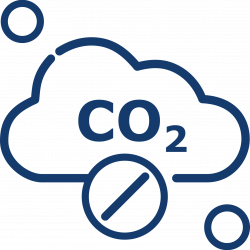
ELECTROCHEMICAL CO2 CONVERSION
ELCAT with professor Breugelmans in the lead is investing a lot of time and effort in the electrochemical CO2 conversion to specific products, including formate/formic acid, carbon monoxide, ethanol and ethylene. When utilizing renewable energy, this approach could potentially result in decreased CO2 emissions to the atmosphere highlighting the green chemistry aspect of the research at ELCAT. With the electrochemical CO2 conversion branch, ELCAT performs research from the fundamental to the applied level. In terms of fundamental research, ELCAT is amongst others looking into (1) the development of novel electrocatalysts with a strong focus on improving their long-term stability by utilizing confinement strategies; (2) fabricating ordered porous 3D electrodes to visualize, understand and optimize mass transfer; and (3) the impact of dopants present in real CO2 streams on long-term CO2 electrolyzer performance. For this specific research, professor Breugelmans was recently awarded an ERC consolidator grant (TRANSCEND), which proofs the international recognition of his work in the field. For the more applied branch, ELCAT is actively collaborating with (European) industrial players to design, develop and test actual CO2 electrolyzers, which it can fabricate from scratch thanks to their extensive engineering facilities. Currently, ELCAT is working towards the up-scaling of a CO2 to CO electrolysis within the framework of Horizon Europe to obtain a TRL7 electrolyzer.
ELECTROCHEMICAL HYDROGEN PRODUCTION
In the field of electrochemical hydrogen production, the main focus of the ELCAT research group with professor Breugelmans in the lead is on the design, development and evaluation of water electrolyzers to improve their overall energy efficiency and enhance their application potential. In this respect, ELCAT can rely on their extended engineering infrastructure, which it can use to develop and optimize the different electrolyzer components (e.g. electrodes, flow fields, etc.) in 3 dimensions from scratch. In collaboration with industry, ELCAT is also actively trying to up-scale their electrolyzers both for alkaline and acidic water electrolysis. Besides from this more applied approach, ELCAT is also actively looking into the fundamental aspects of water electrolysis. More specifically, it is actively trying to understand and optimize noble metal-free oxygen and hydrogen evolution electrocatalysts and unravel the impact of impurities and dopants on the performance.
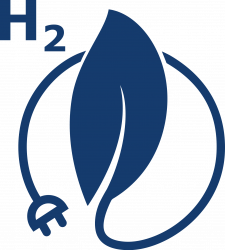
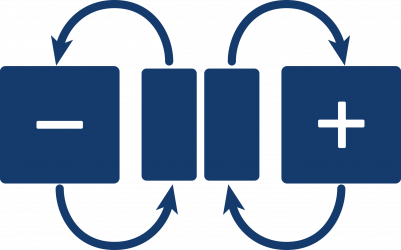
REDOX FLOW BATTERIES
With professor Hereijgers in the lead, ELCAT is also highly active in the field of flow batteries. Within this domain, the main aim is to develop innovations with respect to electrochemical engineering with a strong focus on the design, development and fabrication of flow fields and 3D electrodes. An important goal is to improve both current and electrolyte distribution to boost energy efficiency. Other areas of interest are capacity retention and durability of battery components. Work is presently centred around vanadium systems with other chemistries under development. For this specific research, professor Hereijgers was recently awarded an ERC starting grant (RECHARGE), which proofs the international recognition of his work in the field.
POWER-TO-CHEMICALS
Besides electrochemical hydrogen production and CO2 reduction, ELCAT with professor Breugelmans in the lead is also actively developing other electrochemical conversions to replace current traditional industrial approaches in an attempt to further electrify the industry and as such make it more sustainable. In this respect, ELCAT is looking into the production of ammonia and urea, conversion of waste biomass, etc. and this from a more fundamental approach.
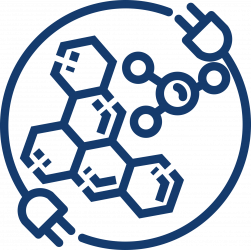
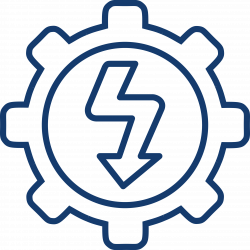
ENGINEERING SERVICES FOR (ELECTRO)CHEMICAL APPLICATIONS
Finally, given ELCAT’s main expertise is in the field of (electrochemical) reactor design, we also offer our engineering services to industry to develop novel reactor designs that are specifically tailored to the industries needs. For this purpose, ELCAT can count on a broad range of engineering equipment (milling machine, 3D printers, laser micromachining, etc.).
